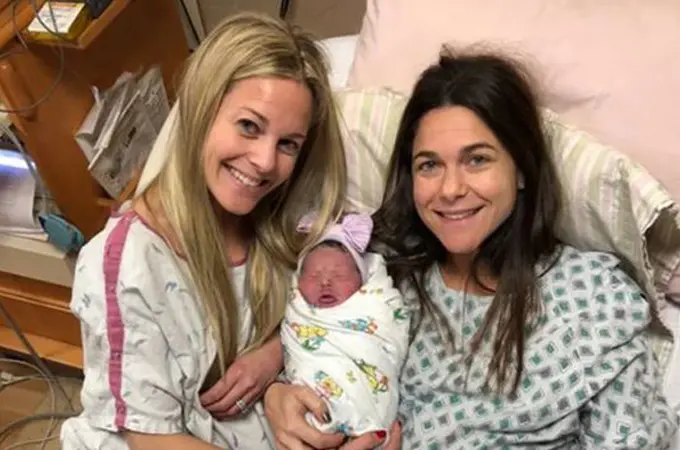
Metro Weekly’s recent article, “Other People’s Children: Surrogacy and its misconceptions,” covers the legal complications surrounding surrogacy in the state of Maryland. In this piece, Michael J. Levy, M.D., a founding partner and Director of IVF at Shady Grove Fertility, provides context for this assisted reproductive technology.
How the Gestational Carrier Process Works
A gestational carrier—a woman who carries a pregnancy but is in no way biologically or genetically related to the child she is carrying—is needed for any couple in which the female partner cannot carry the pregnancy. An inability to carry a pregnancy may result from the following conditions in which the female partner has had her uterus surgically removed:
- cervical or uterine cancer
- fibroids
- severe endometriosis
- conditions requiring a hysterectomy
In other cases, the woman may have an intact uterus but the uterus still may not be able to carry a pregnancy to term. Same sex male couples will also work with a gestational carrier to have a child.

While Shady Grove Fertility does not recruit gestational carriers, the patients’ medical team will refer them to reputable agencies and attorneys who specialize in identifying gestational carriers. After the couple has met with the agency/attorney, the prospective carrier (who, by law, has had successful pregnancies/live births previously) and the intended parents will meet in order to determine compatibility. If they decide to work together, an attorney will draw up a legally-binding contract at that time. The gestational carrier will also have to undergo medical and psychological screening.
In the case of a same sex male couple, the couple will select an egg donor after the screening and legal contracts are in place. Once that process has been completed, a physician will retrieve the eggs from the donor and one or both male partners will provide previously frozen sperm samples that an embryologist will use to inseminate the donated eggs. After the embryos have developed in the lab for 5 to 6 days, the physician will transfer the embryo(s) to the gestational carrier.
The Need for Legislation

While legally-binding agreements must be in place for a couple to work with a gestational carrier, these agreements are not currently recognized in the state of Maryland. Thus, without any laws governing gestational carriers, the gestational carrier is initially assumed to be legally responsible for the child. Additionally, there are no guarantees that Maryland courts will enforce the legally-binding agreement if something went wrong. Legislators have been trying to clarify the law with respect to the rights and responsibilities of intended parents and carriers who enter into gestational carrier agreements, but this bill has so far failed to move forward in the General Assembly.
Dr. Levy said that some of the opposition that the gestational surrogacy bill ran into was ideological, based on opposition to any form of conception that occurs outside of the body. He continues, “If you’re personally unaffected, you have an abstract view that is different.” Dr. Levy notes that other opposition comes from issues related to abortion rights and embryo rights and opposition to “destroying embryos,” as many embryos are utilized in the process of in vitro fertilization (IVF).
While opponents may feel this way, gestational carriers and intended parents share a very positive experience with one another. Sarah Cowen, a gestational carrier who worked with Shady Grove Fertility, said, “I picked this couple just as much as they picked me. Just like a pregnancy, it’s up to an individual woman what she should do with her own fertility. I chose it. I loved it…I got to experience helping create an entire family. It’s my greatest accomplishment, and I can’t imagine not having this as a part of my life story.”
Del. Kathleen Dumais (D-Montgomery Co.), the House sponsor of the gestational carrier bill, plans to bring the bill forward again in an upcoming term.
To schedule a new patient appointment at Shady Grove Fertility or to learn more about using a gestation carrier to build your family, please call our New Patient Center at 877-971-7755.





